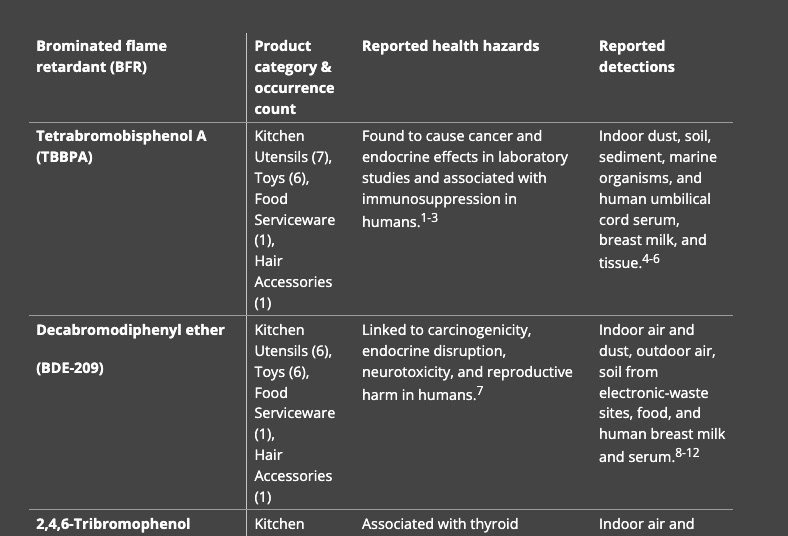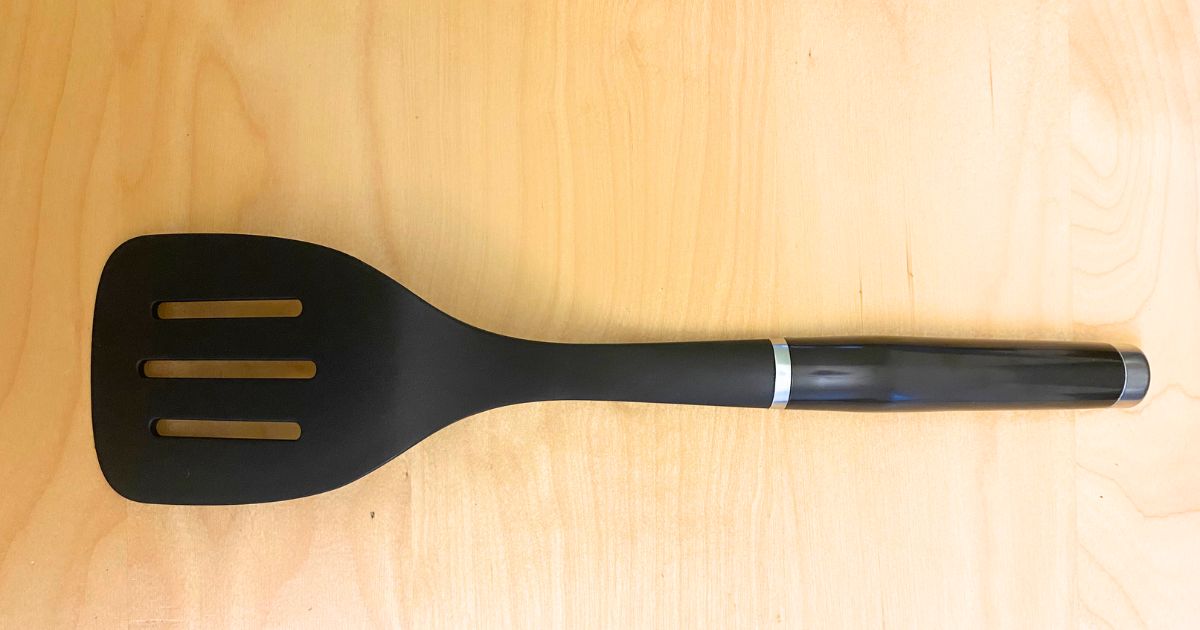Update: Study correction does not impact conclusion
Published: July 3, 2025
A second correction to this study was published in the journal on July 3, 2025.
In brief
The second correction involved the same exposure example that was addressed in the December 15, 2024 correction.
As a result of this correction, the estimated exposure to deca-BDE from a contaminated kitchen utensil is lower than originally published. We appreciate those who helped identify the error.
While we regret the error, the exposure example was not part of the core research objectives or methods of the study. It was included as a discussion item to illustrate potential exposure to deca-BDE, one of 11 flame retardants found in the plastic products tested, through the use of contaminated kitchen utensils, based on relevant peer-reviewed data.
The aim of the study was to investigate whether electronics containing highly hazardous flame retardants are being recycled into consumer products. The findings highlight ongoing health concerns and the urgent need for stronger regulation of these highly hazardous chemicals.
The study’s core findings and conclusions remain unchanged:
- Toxic flame retardant chemicals were found in the products we tested. The study found high levels of toxic flame retardants, which are linked to cancer and other health impacts, in black plastic kitchen utensils, food serviceware, toys, and hair accessories. Plastics known for use in electronics contained higher levels of toxic flame retardants.
- Highly hazardous brominated flame retardants found in the tested products are facing some regulatory bans. Due to their known toxicity, persistence, and ability to bioaccumulate, organohalogen flame retardants are now banned in certain plastic electronic enclosures by Washington and New York. Deca-BDE has been banned by at least six states, the U.S. EPA, and the European Union. However, none of the flame retardants found in this study are currently regulated in recycled plastics in the U.S.
- Stronger regulation is needed. The study called for additional regulation of toxic flame retardants to end the use of hazardous flame retardants and ensure that replacements are made with safer chemicals and materials. Such regulation using a hazard-based approach is a protective, rational, and scientifically sound way to address the health impacts of toxic chemicals in consumer products. This means chemicals linked to the highest hazards such as cancer are phased out.
This study adds to a growing body of scientific evidence finding that toxic flame retardants are turning up in everyday plastic products – especially those made from recycled materials. A 2024 study found high levels of flame retardants in children’s toys, while a 2025 study detected multiple flame retardants in plastics from electronic-waste. A scoping review of 28 studies across 57 countries confirmed widespread contamination of childcare products with legacy flame retardants – again pointing to recycled plastic as the source.
Table: Toxic Flame Retardants in Everyday Products
This table lists the specific brominated flame retardants found in the 2024 study From E-Waste to Living Space, including the product categories they were found in and the number of occurrences. It also includes information from other studies on reported health hazards and detections in people, wildlife, and the environment.

Published December 16, 2024 / Updated December 17, 2024
A correction to this study was published in the journal on December 15, 2024.
In brief
Toxic-Free Future was recently made aware of an error in our peer-reviewed study on black plastics, From e-waste to living space: flame retardants contaminating household items add to concern about plastic recycling. The error does not impact the study’s findings, recommendations, or conclusions.
We are grateful to the scientists who brought this forward and we apologize for the error. Toxic-Free Future holds itself to the highest scientific rigor and standards. The following is an important update from Toxic-Free Future.
On November 26, 2024, the study authors submitted a correction to the journal in response to the error. The journal published this correction on December 15, 2024.
The error was made in comparing the estimated exposure of one of the flame retardants (deca-BDE) found in a kitchen utensil to the U.S. EPA reference dose. Deca-BDE was one of the 11 flame retardant chemicals found in the products tested. As noted in the published correction, “this calculation error does not affect the overall conclusion of the paper.”
It is important to note the reference dose comparison was not referenced or included in the study’s “highlights”, “abstract”, or the “conclusion” sections. These are the sections in a peer-reviewed paper that typically contain the most important information.
The study’s key findings:
- Show the presence of high levels of toxic flame retardants, linked to cancer and other health impacts, in black plastic kitchen utensils, food serviceware, toys, and hair accessories.
- Show that out of the products containing flame retardants, 16 out of 17 products contained multiple flame retardants ranging from two to nine different flame retardants.
- Provide clear evidence to support the hypothesis that the black plastic and associated flame retardants are coming from recycling electronics.
The correction doesn’t impact the facts:
- The flame retardants found aren’t needed for any reason in kitchen utensils, toys, hair accessories, or food packaging, making this a health hazard that can be avoided entirely.
- Deca-BDE has been banned by states, the U.S. EPA, and European Union because it is a persistent, bioaccumulative, and toxic (PBT) chemical, but is not restricted for recycled products in the U.S. This recently sparked a lawsuit by Earthjustice. Out of the 11 flame retardants found in the study, none are regulated in recycled plastic products.
- A number of the flame retardants we found in the products are persistent, bioaccumulative toxics, or PBTs, chemicals that don’t break down quickly and build up in our bodies and the food chain.
- The flame retardants detected are highly hazardous and associated with cancer, hormone disruption, neurotoxicity, and reproductive and developmental harm.
- Studies have demonstrated these flame retardants can migrate from electronics into indoor air and dust, from utensils into food, and from toys into saliva.
The conclusions are also unaffected:
- These results show that when toxic additives are used in plastic, they can significantly contaminate products, made with recycled content, that do not require flame retardancy.
- Products found in this study to contain hazardous flame retardants included items with high exposure potential, including food-contact items as well as toys.
- Regulatory bodies have begun to address the use of certain classes of flame retardants, but more regulation is needed to end the use of hazardous additives and ensure that replacements are made with safer materials and chemicals.
Everyone deserves products free of highly hazardous chemicals. Fortunately, safer solutions exist and are readily available.
Our recommendations for governments, retailers, and consumers remain the same and can be found in this fact sheet.
Study: Toxic Flame Retardants in Recycled Plastics (2024)
A peer-reviewed study found toxic flame retardants usually associated with electronics showing up where they’re not expected: in black plastic household products including a takeout sushi tray, spatulas and other kitchen utensils, as well as costume beads, travel games, and other toys.

